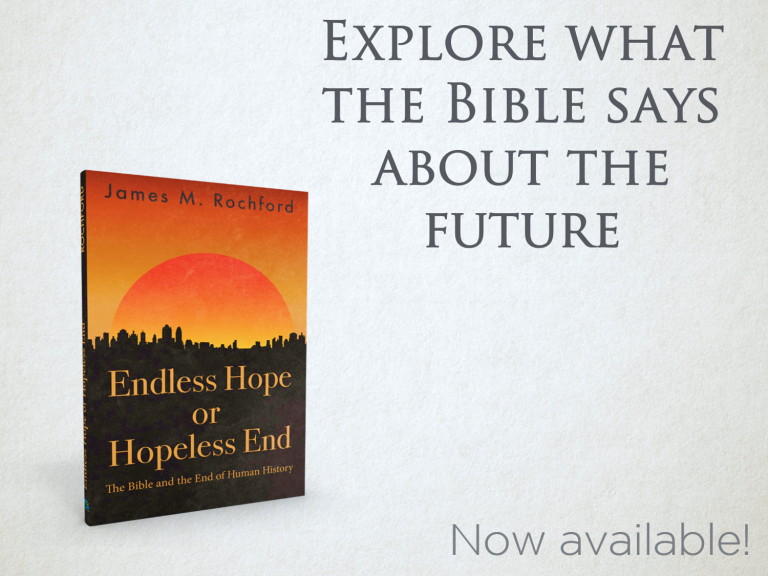 At the heart of eschatology is our view of the millennium. Will Jesus literally reign on Earth for a thousand years, or is Jesus spiritually reigning from heaven or in the hearts of believers? Should we expect human history to get better with time, or worse? Does the millennium refer to a literal 1,000 year reign, or is this symbolic for the Church Age? Many questions confront the interpreter.
At the heart of eschatology is our view of the millennium. Will Jesus literally reign on Earth for a thousand years, or is Jesus spiritually reigning from heaven or in the hearts of believers? Should we expect human history to get better with time, or worse? Does the millennium refer to a literal 1,000 year reign, or is this symbolic for the Church Age? Many questions confront the interpreter.
We hold to a premillennial perspective, but hopefully, we can articulate the other perspectives accurately. Here is a brief overview of each position:
Millennial Views |
||||
VIEW |
Premillennial |
Amillennial |
Postmillennial |
Historical Premillennial |
|
The Millennium |
A literal 1,000 year period |
A figurative number |
A figurative number |
A literal 1,000 year period. |
|
Christ’s Reign |
Reigns literally in a kingdom on Earth after his Second Coming |
Reigns spiritually on a heavenly throne or reigns spiritually in the hearts of believers |
Reigns spiritually in the hearts of believers, as the gospel transforms the nations of the Earth |
Reigns literally in a kingdom on Earth after his Second Coming |
|
Israel |
Christ reigns in Israel over a regathered Israel |
The Church replaces the promises given to national Israel |
The Church replaces the promises given to national Israel |
The Church replaces the promises given to national Israel |
|
View of Human History |
Believes human history will get progressively worse, as the gospel reaches all nations |
Believes human history will get progressively worse, as the gospel reaches all nations |
Believes that human history will get progressively better. The nations will eventually be transformed by Christ’s reign over society |
Believes human history will get progressively worse, as the gospel reaches all nations |
As you can see, there are radically different perspectives regarding the millennium. How can Christians disagree so much on this topic?
Hermeneutics: The Art and Science of Interpretation
How should we interpret these prophecies about the end of human history? Hermeneutics—the art and science of interpretation—forms the foundation of this debate. Amillennialist Oswald T. Allis writes, “Old Testament prophecies if literally interpreted cannot be regarded as having been yet fulfilled or as being capable of fulfillment in this present age.”[1] That is, if we hold to more of a literal interpretation, then we will arrive at premillennialism; however, if we hold to more of a spiritual fulfillment, then we will arrive at an alternative view.
When it comes to biblical prophecy, we should assume that a prophecy is a literal prediction, but we should allow for a figurative or symbolic interpretation, if the text indicates this. Dwight Pentecost writes, “The interpreter will proceed on the presupposition that the word is literal unless there is a good reason for deciding otherwise.”[2] We follow the maxim: “If the plain sense makes sense, seek no other sense, lest it result in nonsense.”[3]
This being said, let’s consider each view:
1. The Premillennial View: Christ Initiates His 1,000 Year Reign
2. The Amillennial View: The 1,000 Years is Symbolic
3. The Postmillennial View: We Initiate the 1,000 Year Reign
4. The Historical Premillennial View: Israel is Not in the Millennium
[1] Allis, Oswald T. Prophecy and the Church; an Examination of the Claim of Dispensationalists That the Christian Church Is a Mystery Parenthesis Which Interrupts the Fulfilment to Israel of the Kingdom Prophecies of the Old Testament,. Philadelphia: Presbyterian and Reformed Pub., 1945. 238.
[2] Pentecost, J. Dwight. Things to Come: a Study in Biblical Eschatology. Grand Rapids, MI: Academie, 1964. 40.
[3] David Cooper writes, “When the plain sense of Scripture makes common sense, seek no other sense; therefore, take every word at its primary, ordinary, usual, literal meaning unless the facts of the immediate context, studied in the light of related passages and axiomatic and fundamental truths, indicate clearly otherwise.” Cited in Pentecost, J. Dwight. Things to Come: a Study in Biblical Eschatology. Grand Rapids, MI: Academie, 1964. 42.
